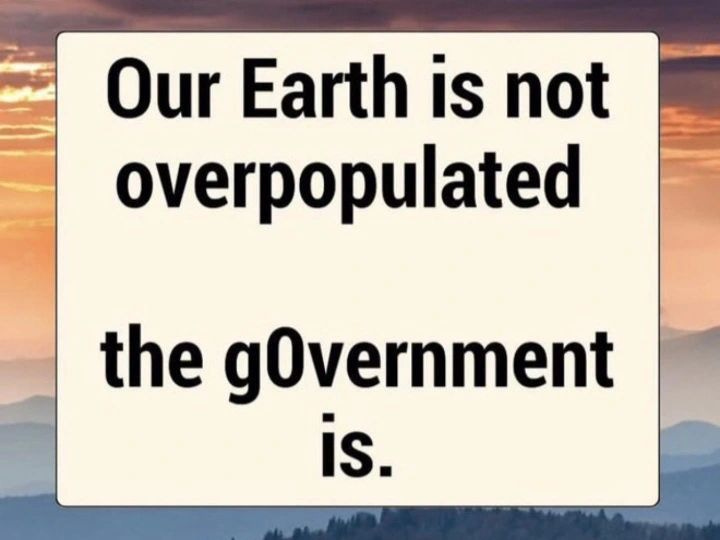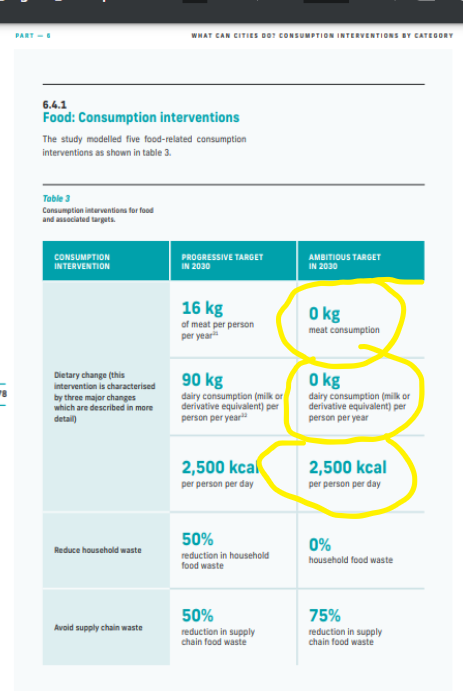THE WEF AND THE FOOD SYSTEM yes they are coming for Agriculture if their long laid plans mean anything
Food is a third of green house gas emissions OH NO. Quick let's not eat.
Is Bill Gates investing in farm land?
Is Bill C-293 coming for our meat?
No. They gas light us.
Well the WEF in 2015 laid down the philosophy.
“This article is published in collaboration with The Conversation.
With the food system accounting for up to a third of global greenhouse gas emissions, anything that reduces its impact will make a big difference to the climate.
It is a system riddled with inefficiencies and waste. Humans don’t simply eat food straight out of the ground, of course. It’s harvested, stored, processed – or fed to animals who are in turn slaughtered and processed – and finally packaged and delivered. Each of these stages uses energy, which means emissions.
In very rough terms, the world grows about 6,000 calories per person a day in edible crop harvest. That is about three times the 2,000 calories a day that end up getting to be eaten by humans. This would be enough to feed everyone if we shared it round perfectly, which we don’t, so some people go hungry while others eat more than is good for them.
So what happens to the massive 4,000 calories per day gap between field and fork and what has this got to do with going vegetarian or even vegan?
Here, again in rough numbers, is how the missing calories can be accounted for:
About 900 are agricultural waste, much of which is simply left in the ground. Supply exceeds demand or the crop is deemed not able meet customer standards.
About 500 go to biofuels. This is not necessarily a bad thing, but it is something we need to keep a very close eye on if we are ever to achieve a low-carbon world. If free market forces were allowed to do their thing we could see a huge shift from food crops to more profitable fuels, at the expense of nutrition in poorer countries.
Around 600 calories are then lost in post-harvest waste. This is mainly an issue in developing countries and is inherently solvable, at face value, through the provision of such things as sealed containers to keep food dry.
Where do the calories go? A simple map of the food system.
Adapted from ‘The Burning Question’p163, Mike Berners-Lee & Duncan Clark (2013), Author provided
So far in the story from field to plate there is still a plentiful 4,000 calories per day left for feeding people. Around 1,700 of these are fed to animals. The animal diet is further supplemented with a substantial amount of grass, some but not all of which is grown on land that could alternatively be used to grow yet more human food.
Animals – some more than others – add an intrinsic inefficiency into the food chain, using up energy for such things as walking around and keeping warm (per kilo of meat, poultry do a lot less of less of this through their lives than cows, making chicken a significantly more efficient energy source than beef). A mere 500 calories per person per day come back out of the animal food system as meat and dairy foods. So the inefficiency of our meat and dairy diet leads to a loss of 1,200 calories per person per day, excluding any grassland that could be used for edible plant crops. And meat consumption is rising fast in developing countries.
To finish off the story, around 800 calories are lost to processing, distribution and household waste, of which the biggest element is household waste in developed countries – the homes of most of the people reading this are included here. Inadequate sharing of the remaining 2,000 that humans actually eat means that some people end up obese while others are hungry.
Seen in this way, the world food system looks to be brimming with opportunities for improvement. If we can get organised – which of course is not at all easy – we ought to be able to use new technologies and deploy best practices to increase yields, as well as cutting out most of the 2,300 calories that are wasted. Even with a rising population – and even with climate change adversely affecting land fertility in some areas – we ought to be able to feed everyone while improving biodiversity and increasing the biofuel output somewhat.
A carbon footprint hierarchy of meats at UK check-outs: deforestation costs Brazilian beef, all cows and sheep ruminate, whereas chickens make relatively efficient food converters.
‘The Burning Question’, Mike Berners-Lee & Duncan Clark (2013), Author provided
Our animal intake puts a huge and growing pressure on the food and land system. If the world went vegan overnight we might be able to feed several billion more people and double biofuel production, even without tackling waste or improving yields.
We need to be asking how plants can become more aspirational foods than cows. But if we are still going to eat meat, stick to chicken which has only about one-tenth of the carbon footprint per kilo of Brazilian beef. This is partly because a chicken is a more energy-efficient meat producer, partly because chickens don’t ruminate, or chew the cud (which emits methane, roughly doubling the footprint of a cow) and partly because chicken farms are less strongly associated with deforestation.
Our studies of the footprint of UK dietary choice have shown that going vegetarian might cut the greenhouse gas footprint by 25%. However the same reduction can also be made through modest actions split across what for most UK people are the three most important things you can do to cut your food carbon: reduce meat, switch type of meat and, of course, cut waste.
Publication does not imply endorsement of views by the World Economic Forum.
To keep up with the Agenda subscribe to our weekly newsletter.
Author: Mike Berners-Lee is a Visiting Researcher at the Lancaster Environment Centre, Lancaster University.”
https://www.weforum.org/agenda/2015/11/can-eating-less-meat-really-tackle-climate-change/
fyi this link works in Brave, and not in Google. How very interesting.
This echoes the Food principles of C40 that is also entering through a globalist municipal deep state.
LINK FOR ABOVE DOCUMENT SEE CONSUMPTIVE INTERVENTIONS AT CHAPTER 6 Come to your own conclusions it leaves us in a Gulag by 2030. Quite the vision they have set out. Do these fools drink their own koolaid. they have to see humanity as a form of cattle themselves.
WE DON’T HAVE CUDS. Cluck right off!!!
This is marching out from globalist entities and it is entering in through Bill C-293 as LAW.
at no point in time should this bill or ‘statements’ be trusted. I was informed that the agricultural lobbies were told by the liberal party ‘it’s a private members bill. Don’t worry. It won’t go anywhere.'“
Consider it is already passed 3 readings of the house and 1 at the Senate. Oh it went places. THE LIBERALS VOTED FOR IT IN THE HOUSE.
MY LETTER to the Senate protects you. Your letter to the Senate protects me. I have heard of people printing up the letters and envelops and doing signing parties in their communities. BRING ON THE MAIL. BRING ON THE MAIL.
1 click letter. You can print the letter too, or write it out.
I feel letter writing is the least we can do.
https://oneclickpolitics.global.ssl.fastly.net/messages/edit?promo_id=23066





I wrote two emails to Senator Leo Housakos and Senator Don Plett titled
Say NO to Bill C293 and Bill C63 on September 29.
If Trudeau prorogues parliament ALL of these nasty bills will wither on the vine and be null and void, only bills that have received Royal Assent will survive.
So either Trudeau sells out by handing over all required documents UNredacted to RCMP to investigate fraud of some of his ministers the PCO and possibly even himself and his close influential former Liberal donors insiders and friends or he prorogues parliament ending this session. So much corruption parliament is currently doing nothing no government business getting done so you know it must be serious!
Re The Conversation: “The Bill and Melinda Gates Foundation funded The Conversation Media Group in Australia to help launch pilots in the United States and in South Africa.” https://theconversation.com/us/partners/the-bill-and-melinda-gates-foundation
In April 2016 I was personally banned by the editor, Misha Ketchell, from commenting on articles on The Conversation. I questioned articles relevant to taxpayer-funded vaccination…which is not allowed on The Conversation, a staunch protector of the Church of Vaccination/‘The Science ™’
See this webpage for background: https://over-vaccination.net/the-conversation-forum/